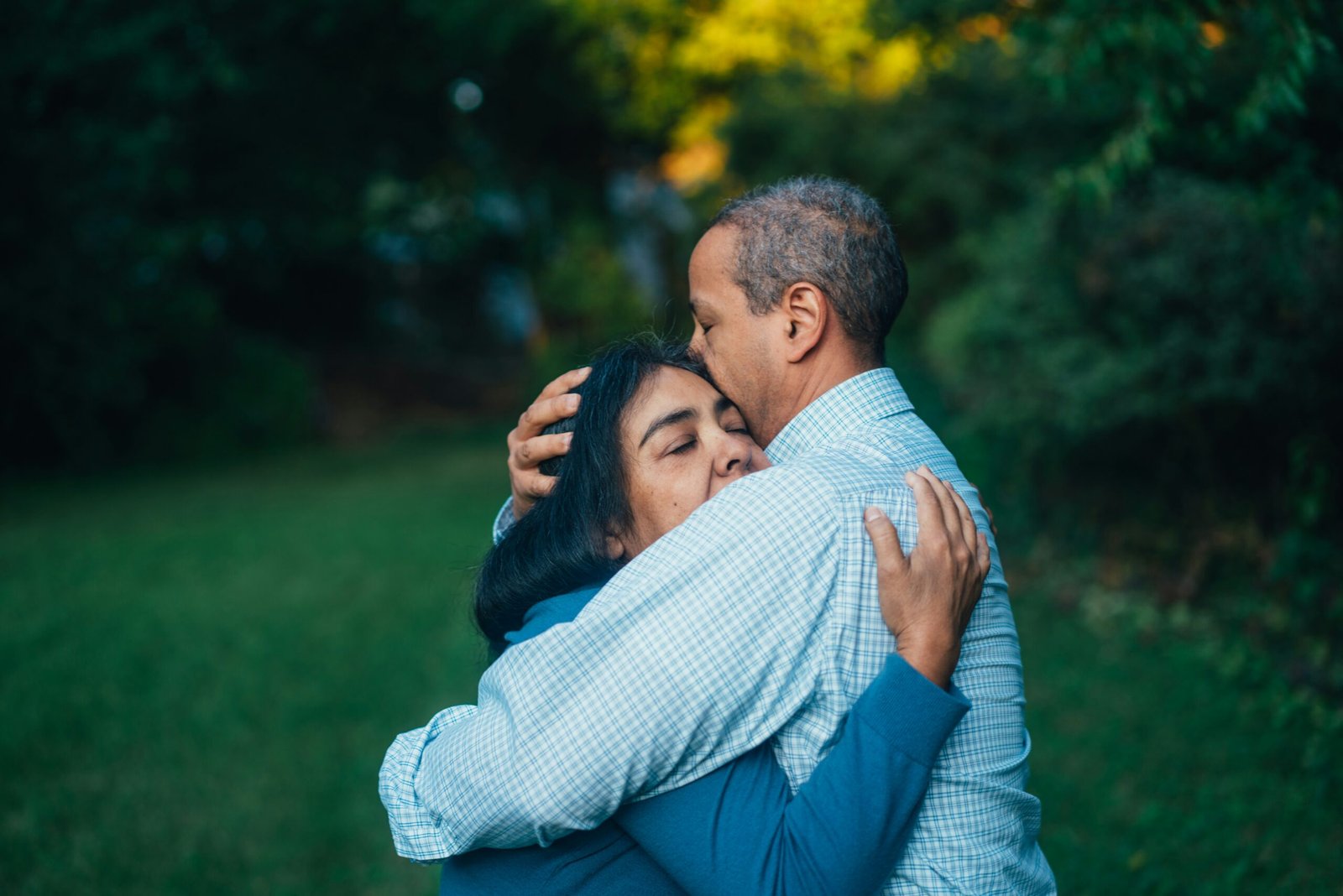Kanguva: A Journey of Forgiveness and Love Beyond Violence

Table of Contents
Introduction to Kanguva
The film Kanguva emerges as a distinctive entry in the contemporary action drama genre, primarily distinguishing itself through its poignant focus on the themes of forgiveness and love. Unlike many films that predominantly showcase narratives steeped in violence and retribution, Kanguva invites audiences to engage with profound emotional arcs that explore the possibilities of redemption and the concept that the highest form of love is forgiving. This perspective challenges the traditional notions of strength and vulnerability, suggesting that true courage lies within the act of forgiveness and the willingness to embrace love.
Kanguva introduces viewers to a narrative that intertwines personal stories with broader societal issues, effectively utilizing the backdrop of action sequences to underscore its philosophical messages. As audiences navigate through the character’s journeys, they witness their struggles not only against external antagonism but also the internal battles that arise from past grievances and the search for reconciliation. The film posits that violence can often perpetuate cycles of hatred, while suriya—the dawn or light—symbolizes hope and renewal in the context of human relationships.
In this way, Kanguva serves as a powerful reminder of the potential for healing through forgiveness. Each character’s journey is carefully crafted to reflect the various facets of what it means to forgive, offering both personal and communal insights. The film positions forgiveness not as a sign of weakness but as a transformative act that can lead to profound understanding and growth. Thus, in examining these integral themes, Kanguva sets itself apart from everyday action dramas, making it a compelling narrative that centers on the intricate interplay of love and forgiveness.
Understanding Forgiveness in Kanguva
In the film Kanguva, forgiveness emerges as a central theme, intricately woven into the narrative. It stands out as what many consider the highest form of love is forgiving. The characters are placed in harrowing situations that challenge their moral principles and personal beliefs. As the story unfolds, we witness their complex emotional struggles and gradual transformation as they embark on a journey toward forgiveness.
The film depicts forgiveness not merely as an act but as a profound emotional and psychological process. Each character grapples with their past, reflecting on betrayal and pain. The portrayal signifies that forgiveness is not a sign of weakness or submission; rather, it is a courageous step towards healing. This resonates with the sentiment that the highest form of love is indeed forgiving, offering a pathway to reclaim their lives and relationships.
Throughout Kanguva, viewers observe how the characters navigate their inner turmoil. The impact of violence and betrayal is palpable, yet the narrative encourages an exploration of compassion and understanding. As they confront their adversaries and themselves, the pursuit of forgiveness becomes a mechanism for personal growth. This evolution speaks to a broader philosophical discussion surrounding the nature of love, empathy, and reconciliation. It suggests that in overcoming anger and resentment, one can find a deeper connection with others and generate a sense of peace.
In this context, Kanguva serves as a poignant reminder that forgiveness is complex, demanding introspection and an acknowledgment of the hurt experienced. The characters’ journeys exemplify how embracing forgiveness, despite difficult circumstances, ultimately leads to redemption and unity—attributes that are essential for nurturing personal and communal bonds.
Suriya’s Role and Perspective
Suriya portrays the main character in the film Kanguva, delivering an evocative performance that underscores the themes of love and forgiveness. His approach to this character is not merely as a role but as a profound exploration of human emotions. Suriya’s expressive acting captures the struggles faced by individuals in seeking forgiveness, aligning perfectly with the film’s message that the highest form of love is forgiving. By integrating both physicality and emotional nuance into his performance, he effectively communicates the gravity of the character’s journey towards healing and reconciliation.
The emotional depth that Suriya brings to the role is rooted in his understanding of the complexities of life and relationships. He draws from his personal philosophies, which emphasize the importance of empathy and compassion. This insight allows him to portray vulnerability and strength simultaneously, embodying the idea that forgiveness is not a sign of weakness but a powerful act of love. His character’s arc in Kanguva encapsulates the struggles of overcoming past grievances, showcasing how the act of forgiving can lead to personal liberation and peace.
In conclusion, Suriya’s role in Kanguva is a testament to his remarkable ability to convey complex emotions, making the film’s message about forgiveness not only heartfelt but deeply impactful. His dedication to the character encourages viewers to reflect on their own lives, considering the profound truth that the highest form of love is forgiving.
Themes of Love and Compassion
The film Kanguva serves as a powerful narrative that delves deep into the themes of love and compassion, illustrating how these emotions can transcend personal and societal conflicts. Central to this film is the concept that the highest form of love is forgiving, a notion which resonates profoundly throughout various relationships depicted in the story. Through a series of poignant interactions, the characters exemplify how love can illuminate even the darkest of circumstances, inviting viewers to reflect on the transformative power of compassion.
One of the most striking scenes occurs when the protagonist, facing insurmountable challenges, chooses to embrace forgiveness over vengeance. This moment not only signifies personal growth but also emphasizes a broader message: that love can be a formidable force in healing wounds caused by violence. The decision to forgive, despite betrayal and pain, becomes a testament to the strength of the human spirit. This scene, among others, reinforces the idea that love is not merely an emotion but a conscious choice—a decision that someone must make to foster inner peace.
The relationships throughout Kanguva reveal layers of complexity, showcasing diverse expressions of love ranging from familial bonds to romantic connections. Each relationship serves as a canvas upon which the themes of compassion and forgiveness are painted vividly. For instance, the reconciliation between estranged family members underlines the importance of understanding and accepting past grievances, offering a powerful lesson on the necessity of forgiveness. Such dynamic portrayals exemplify that love, intertwined with compassion, has the potential to transform not just individuals but entire communities.
As we navigate through the narrative of Kanguva, it becomes clear that love, when combined with compassion, fosters an environment where healing is possible. The film reinforces the belief that authentic strength lies in the ability to forgive, encouraging each of us to aspire towards this profound realization.
The Significance of the Press Meet at Vizag
The press meet held in Vizag for the promotion of “Kanguva” was a significant event in generating buzz around the film. As attendees filtered into the venue, an air of excitement filled the atmosphere, setting a promising tone for the discussions to unfold. Suriya, the acclaimed lead actor, took center stage, establishing a connection with the audience through his charismatic presence and genuine enthusiasm for the film’s message. This interaction was pivotal, as it provided insights into the core theme of the film—embracing forgiveness as the highest form of love.
During the meet, Suriya articulated how “Kanguva” illustrates the transformative power of forgiveness. He emphasized that the narrative is not merely a tale of love but a profound exploration of the human spirit striving for redemption amidst personal and societal conflicts. The audience responded positively, engaging in a spirited dialogue about how such themes resonate in today’s tumultuous environment, where violence and strife often overshadow compassion and empathy.
The responses from journalists and fan interactions were equally noteworthy. Many expressed appreciation for the film’s commitment to portraying forgiveness as a pathway to healing. This genuine appreciation highlighted a collective yearning for storytelling that nurtures understanding and reconciliation. The discussions also touched on the film’s intricate layers, with Suriya further elaborating on the characters’ journeys towards finding peace and compassion, thereby affirming that the highest form of love is forgiving.
Overall, this press meet proved instrumental in shaping the audience’s expectations for “Kanguva.” Not only did it spotlight Suriya’s commitment to the film’s themes, but it also underscored the importance of fostering dialogue around the values of forgiveness and love in contemporary society. Such interactions set a crucial context for the audience to appreciate the underlying messages when they eventually view the film.
Audience Reaction to Kanguva’s Message
The film Kanguva has invoked a tapestry of reactions from its audience, particularly regarding its profound messages of forgiveness and love. As viewers engaged with the narrative, many were struck by the film’s portrayal of forgiveness as not merely a moral imperative but also as the highest form of love. Critics and fans alike have noted how the storyline compels one to ponder their own experiences with forgiveness, leading to discussions that stretch beyond the cinema.
Reviews from various platforms have praised Kanguva for its nuanced treatment of complex emotional themes. Many have taken to social media to express their appreciation for how the film inspires a conversation about reconciliation, suggesting that the characters’ journeys resonate with real-life challenges. Comments highlighting the idea that the act of forgiving can be a liberating force have become a common sentiment among viewers. The narrative encourages audiences to consider that the highest form of love is forgiving, fostering a sense of community among those who resonate with this poignant message.
In the wake of Kanguva’s release, online discussions have flourished, showcasing an array of sentiments surrounding forgiveness. Viewers have shared personal stories of forgiveness, inspired by the film’s characters. This trend highlights how the movie elicits more than just entertainment, serving as a catalyst for introspection and dialogue on forgiveness in society. The film thus emerges as a powerful medium, influencing perspectives and stimulating a deeper understanding of emotional resilience and the importance of forgiveness in fostering harmonious relationships.
Overall, Kanguva’s compelling narrative has succeeded in drawing attention to the necessity of forgiveness in the human experience, demonstrating how this fundamental value can realign personal and collective narratives towards a more compassionate future.
Comparative Analysis with Other Films
The exploration of themes such as violence, forgiveness, and love has been a recurring motif in cinema, yet few films have tackled these dimensions with the nuanced perspective found in Kanguva. While many narratives in the genre often gravitate towards revenge as the primary means of resolution, Kanguva distinguishes itself by prioritizing forgiveness as the cornerstone of healing and personal growth. This approach aligns with the notion that the highest form of love is forgiving, offering audiences a fresh lens through which to examine conflict.
For instance, in films like Gladiator and Oldboy, the protagonists are driven by a thirst for vengeance, showcasing violence as a pathway to reclaim honor or justice. These films underscore the pain and turmoil experienced due to violent retribution, ultimately leaving audiences to grapple with the consequences of such actions. In contrast, Kanguva promotes a narrative wherein the protagonist’s journey emphasizes democratic reconciliation and emotional understanding rather than aggression. The characters in Kanguva exemplify how choosing forgiveness can lead to transformative healing, both personally and socially.
Moreover, exploring titles like Dead Man Walking highlights attempts at reconciliation but often teetering on the edge of revenge. The characters’ struggles with their past actions create a combativeness that Kanguva intentionally sidesteps. In Kanguva, the narrative illustrates that while violence may exist, true strength lies in the ability to forgive and move forward. Through its storytelling, Kanguva not only stands apart from its contemporaries but also elevates the conversation around forgiveness and love, inviting viewers to reconsider their philosophies on conflict resolution.
Lessons Learned from Kanguva
The narrative of Kanguva encapsulates profound lessons about forgiveness and the essence of love. One of the central themes is the understanding that personal relationships often encounter strife and misunderstanding. Embracing the belief that “the highest form of love is forgiving” not only fosters emotional growth but also nurtures stronger bonds between individuals. It underscores the necessity of forgiveness as an antidote to negative feelings, enabling individuals to move forward from grievances rather than allowing them to fester and destroy relationships.
Forgiveness requires immense strength and courage. It is often perceived as an act of weakness when, in reality, the ability to forgive is a testament to one’s emotional resilience. Kanguva illustrates that forgiveness is not simply about excusing someone’s wrongdoing; rather, it involves a deliberate choice to release bitterness and resentment that can be detrimental to one’s well-being. By doing so, individuals can focus on the positive aspects of their relationships, promoting healing and understanding.
The lessons from Kanguva can be seamlessly integrated into everyday life, serving as reminders of the importance of compassion and empathy. Whether in familial ties, friendships, or romantic relationships, the practice of forgiveness can lead to profound transformations. When one actively chooses to forgive, it paves the way for a healthier, more fulfilling connection. This approach not only benefits those involved but also contributes to a more peaceful society. Each act of forgiveness reinforces the notion that love transcends conflicts, echoing Kanguva’s powerful message that embracing forgiveness can ultimately lead to greater harmony and fulfillment. In this intricate dance between love and forgiveness, individuals can discover a path toward personal growth and unity with others.
Conclusion
Embracing forgiveness is undoubtedly a central theme encapsulated within the narrative of Kanguva. The journey through forgiveness is not merely an act of letting go; it is an essential component of expressing love in its purest form. As highlighted throughout the discussion on this captivating saga, the highest form of love is forgiving. It compels us to look past transgressions, fostering growth and the potential for healing in both the giver and receiver of forgiveness.
In the context of life, applying the principles illustrated in Kanguva can be transformative. Every individual can take a moment to reflect on their personal experiences with forgiveness. Consider the moments when harboring resentment and anger seemed easier than extending a hand of reconciliation. It is through recognizing these moments that we can understand the profound impact forgiveness has not only on personal relationships but on the community as a whole.
Moreover, embracing forgiveness invites the opportunity for deeper connections. It allows individuals to move beyond conflict, cultivating an environment where love and understanding can flourish. Practical steps towards incorporating forgiveness into daily life may include practicing empathy, engaging in open and honest dialogue, and consciously choosing to let go of grudges. Such actions echo the sentiment of Kanguva, illustrating that the path to love and peace is frequently paved with the stones of forgiveness.
As we conclude our exploration of Kanguva, let us remember that the power of forgiveness is not solely dependent on the one who has wronged us but also on our willingness to forgive. By integrating the teachings of Kanguva into our lives, we can inspire others to embark on their own journeys towards embracing forgiveness, thus contributing to a more compassionate world.


Post Comment